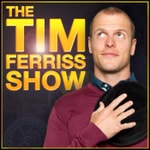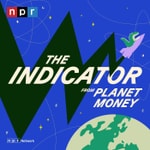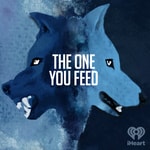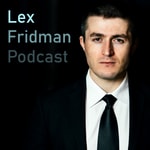Sustain What? – Details, episodes & analysis
Podcast details
Technical and general information from the podcast's RSS feed.
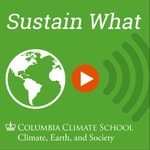
Sustain What?
Andy @Revkin
Frequency: 1 episode/25d. Total Eps: 57

revkin.substack.com
Recent rankings
Latest chart positions across Apple Podcasts and Spotify rankings.
Apple Podcasts
🇬🇧 Great Britain - socialSciences
02/06/2025#96🇬🇧 Great Britain - socialSciences
01/06/2025#79🇨🇦 Canada - socialSciences
31/05/2025#98🇬🇧 Great Britain - socialSciences
31/05/2025#65🇨🇦 Canada - socialSciences
30/05/2025#89🇬🇧 Great Britain - socialSciences
30/05/2025#55🇨🇦 Canada - socialSciences
29/05/2025#79🇨🇦 Canada - socialSciences
28/05/2025#52🇫🇷 France - socialSciences
25/05/2025#98🇫🇷 France - socialSciences
24/05/2025#90
Spotify
No recent rankings available
Shared links between episodes and podcasts
Links found in episode descriptions and other podcasts that share them.
See all- https://twitter.com/USGS
4 shares
- https://twitter.com/j_devincenzo
3 shares
RSS feed quality and score
Technical evaluation of the podcast's RSS feed quality and structure.
See allScore global : 59%
Publication history
Monthly episode publishing history over the past years.
How do You Stay Sane in Such Turbulent Times? For Me, One Path is Still Music
dimanche 3 novembre 2024 • Duration 02:15
Take a mental break and do tell me how you stay sane and centered given the turbulence of this political and societal moment and the tough path ahead?
For me - along with our dogs, cooking, carpentry, hikes and the like - there’s always music. (Read my post explainng that side of my life if you haven’t already.)
This new song of mine, “After the Roaming,” was inspired by a melody composed by fellow student Kathy O'Rourke during our current songwriting workshop at Bagaduce Music in Blue Hill, Maine. (We were each tasked by the teacher, George Emlen, to create a couple of simple melodies and then were asked the following week to write lyrics to a melody other than our own.)
The lyrics are below.
Life’s a very fine line right now
I’m planning to pull together this tune and a batch of my recent original songs into my first album since my debut recording in 2013, “A Very Fine Line.” That tune, I realize, is also highly relevant given that one line is as follows:
It’s a very fine line between loony and sane.A very fine line between a loss and a gain.A very fine line between pleasure and pain.Most of your life you spend walking a very fine line.People you think are a genius are this far from bent.President blows an election by half a percent.We all know love hurts but we try it again and again.We know that the line between love and despair is so thin.
Chip in via the subscription box here if you want to help support the musical part of what I do, as well:
To help sustain Sustain What, including my musical interludes, consider chipping in as a paid subscriber.
Here’s “After the Roaming.” Snag an audio download at Revkin.Bandcamp.com or share the video version on YouTube below.
After the Roaming
© 2024, Andrew Revkin
I’ve fished the ocean, and I’ve plowed the ground.
I’ve toppled timber and rambled around.
But in all my roaming, two things I can’t find:
A loving companion and true peace of mind.
A loving companion and true peace of mind.
When a lad leaves his home to go out on his own
His work and his friends are his life.
But the job and the beer in the end bring no cheer
Compared to the arms of a wife.
So I’ll sell my boat, drop the plow and the axe.
I’ll woo a sweet woman and finally relax.
After all of that roaming, two things will be mine:
A loving companion and true piece of mind.
A loving companion and true piece of mind.
This is a public episode. If you'd like to discuss this with other subscribers or get access to bonus episodes, visit revkin.substack.com/subscribe
Live from Trump's Hate-Filled Madison Square Garden Rally
lundi 28 octobre 2024 • Duration 19:37
UPDATED 10/28 9 am - As I’ve written before, no real progress on the issues I explore here on Sustain What is possible without sustaining democracy and moving past racism and hate, so I had to cover tonight’s hate-filled Trump “rally.”
As Donald Trump’s Madison Square Garden event was getting into gear on Sunday afternoon, I reached out to Marshall Curry, an Academy-Award winning film director.
I was hoping to interview him because in 2017 he made a stunning seven-minute documentary called “A Night at the Garden” built with rediscovered film footage of the February 1939 rally at the venue organized by the German American Bund, a pro-Hitler organization that was inflaming passions here in the years before the United States entered World War II.
It turned out Curry was in line outside the Garden amid thousands of MAGA-hatted Trump fans.
Curry was there shooting a documentary following the work of a major magazine that had two journalists in the hall (details can’t be released yet). Once he was in the building, in between hate-filled speeches from the podium, we were able to connect by phone. I’ve posted the conversation above and you can also watch and share it on Facebook, YouTube, LinkedIn and X/Twitter.
I got to know Curry starting in 2011, when I wrote for The New York Times about his “brutally neutral” film (my description) centered on the life of an Earth Liberation Front arsonist environmentalist and the federal prosecutor who pursued the group for years.
In our conversation Curry stresses that he doesn’t see Trump as a Nazi, but did find the level of vitriol in the hall deeply chilling - and at a level far beyond what he’s seen in even the most passionately anti-Trump Democrats.
As he expalined:
I still don’t think Trump is a Nazi but I do think he’s a demagogue and I do think he uses a lot of these same tactics demagogues have used for thousands of years – to kind of stir people up against each other and grab power in the process.
Please do listen and weigh in with your thoughts.
I watched the first hour or so of warmup acts and was appalled at several points, particularly by Rudolph W. Giuliani’s vile diatribe lumping all Palestinians - including the “good people” - in one unwelcome boat.
I hope that any voters in swing states whose prime concern is the future of Gaza and the Palestinian people drop any plans to skip voting for Kamala Harris.
In the meantime, Fox News had a very different impression of the “historic rally.”
Sustain What is a reader-supported publication. To receive new posts and support my work, consider becoming a free or paid subscriber.
This is a public episode. If you'd like to discuss this with other subscribers or get access to bonus episodes, visit revkin.substack.com/subscribe
Testing the "Unsettled" Climate-Science Assertions of Steve Koonin
mardi 11 juin 2024 • Duration 01:16:19
I hope you’ll watch and weigh in on this Sustain What episode testing the arguments against climate alarm of Steven Koonin, a former chief scientist at BP and former Obama-era Energy Department science undersecretary who is the author of the best-selling book Unsettled – What Climate Science Tells Us, What it Doesn’t, and Why it Matters. An updated edition was eleased on June 11th.
You can also watch and share the conversation on YouTube, X/Twitter, Facebook or LinkedIn.
Koonin, who’s joining the Hoover Institution this fall as a senior fellow, has a new op-ed out in the Wall Street Journal titled “The ‘Climate Crisis’ Fades Out.” He warns that overreach based on overheated interpretations of climate science is already causing societal pushback.
We agreed on many points but I proposed that his emphasis on “unsettled/settled” as the threshold for shaping decisions can leave societies racing to pursue solutions too late because climate change is more like a one-way ratchet than a knob that can be turned back.
We were joined by Roger Pielke Jr., a longtime climate policy analyst you’ve seen here before. Read Pielke’s critique of Koonin’s book (which largely tracks my views):
Pielke also debated Koonin last year on the question, “Is Net Zero by 2050 Possible?” We revisited this criticism of the book taken from that debate:
Koonin’s book, which was first published in 2021 and has, according to the publisher, sold some 200,000 copies, grew out of arguments he made in an opinion piece he wrote for The Wall Street Journal in 2014. I reached out to him at that time with a couple of questions and posted them and his answers on my Dot Earth blog. Click to my announcement of this webcast for that piece, which laid the foundation for todays discussion:
Sustain What is a reader-supported publication. To receive new posts and support my work, consider becoming a free or paid subscriber.
This is a public episode. If you'd like to discuss this with other subscribers or get access to bonus episodes, visit revkin.substack.com/subscribe
A Potent Film, Checkpoint Zoo, Provides an Animal's Eye-View of an Inhuman Invasion
jeudi 6 juin 2024 • Duration 33:08
War is hell. No headline there.
But imagine war expierenced through the eyes and ears of lions, chimpanzees, camels and other creatures in a wildlife park in northeastern Ukraine, and experienced by their keepers and a ragtag crew of volunteers who rushed to evacuate them as Vladimir Putin’s full-scale invasion played out in 2022.
That is what you’ll experience when the documentary “Checkpoint Zoo” gets into theaters or streaming sites after its premiere at the Tribeca Festival. I hope the film gets wide distribution.
“Checkpoint Zoo” tells the story of Feldman Ecopark, a sprawling zoo and wildlife sanctuary on the outskirts of Ukraine’s second biggest city, Karkhiv, just 30 miles from the Russian border. The facility was created in 2011 by Oleksandr Feldman, one of Ukraine’s richest businessmen. A philanthropist focused on social issues, Feldman made the zoo a hub for therapy for children with disabilities and rehabilitation for drug addicts. If you scan pre-war social media, it’s all heartwarming scenes.
Then came the full-scale invasion on February 22, 2022. Five weeks in, Feldman posted an online plea for help as his staff and a passionate batch of volunteers raced to relocate the animals even as Russian attacks blasted buildings and rockets fell. Here’s Facebook video from the park in early April that year showing a shell next to animal enclosures.
Ultimately six people were killed in the animal evacuation efforts, including a 15-year-old boy, according to the film and other news reports. The park has since reopened but of course faces new threats as Russia has renewed its offensive around Karkhiv.
The film, directed by Joshua Zeman, skilfully weaves video from a trove recorded on the run by zoo staff and powerful interviews and imagery filmed by Zeman and his crew in three trips to the region in late 2022 and 2023 - during which explosions can occasionally be heard and, in one case, filmmakers and other journalists scramble for cover along with their subjects.
The result is an extraordinary portrait of the jarring mix of humanity and inhumanity created in wartime. There is heroism, wrenching loss, boundless love and a key component of any film - transformation. In this case, one of the young volunteers, a veterinarian, goes into military service as a medic.
The presence of non-human animals, as both victims and witnesses to the best and worst our species has to offer, further intensifies the experience and the leaves the viewer full of tough and essential questions.
I hope you’ll take time to watch or listen to my Sustain What conversation with Zeman. (Here’s the super rough Trint transcript.) I got to know know and respect his work through his previous documentary, “The Loneliest Whale.” That 2021 film was inspired by a short news story I wrote for The New York Times back in 2004 about the mystery of an elusive great whale in the vastness of the Pacific Ocean calling out at a frequency distinct from that of any known species.
When there’s a trailer or clip from “Checkpoint Zoo” online I’ll add it here, but in the meantime have a look at this video posted by the folks at Feldman Ecopark:
Sustain What is a reader-supported publication. To receive new posts and support my work, consider becoming a free or paid subscriber.
This is a public episode. If you'd like to discuss this with other subscribers or get access to bonus episodes, visit revkin.substack.com/subscribe
Meet a Top Guide to Hurricanes and Climate Change as a Hot Atlantic Storm Season Begins
samedi 1 juin 2024 • Duration 41:54
June 1 is the official start of hurricane season in the Atlantic, Caribbean and Gulf of Mexico. To stay safe along coasts or in floodable inland areas as the season heats up, you should of course bookmark NOAA’s National Hurricane Center tracking and warning site. Don’t get too used to the storm-free image on the site at the moment:
To stay sane as the media environment around hurricanes and climate change heats up, you should bookmark NOAA’s Global Warming and Hurricanes page, curated for many years by senior scientist Tom Knutson.
Knutson is one of the most level-headed and objective scientists I know in a research arena full of competitive groups, data gaps and intense debates. It’s also an arena being flooded with money as the insurance industry and businesses needing to demonstrate or measure environmental responsibility (e.g. S&P Global) hire climate scientists and invest in modeling.
I’ve been interviewing and citing Knutson for more than 20 years and thought this week was a good time to catch up with him to go over what’s well established about the influence of warming from rising carbon dioxide concentrations on tropical storm behavior and what remains obscured by natural variability and the rarity of the biggest storms. Watch or listen above or on the audio podcast or watch and share our chat on YouTube, Facebook or LinkedIn.
We talk about the “Category 6” question, the continued disagreement among researchers over the relative influences on Atlantic tropical storms of hazy air pollution and slowly shifting ocean currents and more.
There’s a super-rough Trint transcript here (they tend to be better than the one that Substack generates, at least for now). If more subscribers find it possible to chip in financially, I can get these cleaned up (and make lots of other improvements).
You may also want to click back to an evergreen interview I did around the 30th anniversary of Hurricane Andrew’s devastating hit on South Florida with the University of Miami hurricane scientist Brian McNoldy - whose Tropical Atlantic Update blog and @BMcNoldy X/Twitter feed are invaluable.
This is a public episode. If you'd like to discuss this with other subscribers or get access to bonus episodes, visit revkin.substack.com/subscribe
Moving from "Waste Not" Aphorisms to Action - One Town and Product at a Time
mardi 9 avril 2024 • Duration 48:31
I just had a solutions-focused waste-cutting Sustain What chat with two marvelous guides - Edward Humes, the Pulitzer-winning author of Total Garbage - How We Can Fix Our Waste and Heal Our World (following up on his 2012 book Garbology - Our Dirty Love Affair with Trash); and Sarah K. Nichols, who’s driven some of the most significant innovations in state policy around waste reduction and now works for an innovative beverage container recycling company called Clynk. There’s more about Clynk below.
Watch and share on YouTube, LinkedIn, X/Twitter and Facebook.
To receive posts by email or chip in to help keep this project going, consider becoming a free or paid subscriber.
Nichols, who’s featured in Humes’ book, was a prime force shaping the successful 2021 effort to expand Maine’s “Extended Producer Responsibility” (EPR) laws to cover packaging - making it the first state in the nation to do so, shifting the financial burden for recycling to corporations from local communities.
As the trade publication Packaging World has reported, the final regulations are emerging this year and are sorely needed, given the straining recycling budgets of many Maine municipalities (including our budget-strapped town):
Many Maine communities have suspended or cut back their recycling programs because of limited options and rising costs for managing these materials, sending them to landfills instead. With landfills throughout the state nearing capacity, this temporary solution creates another expensive problem: expanding existing landfills.
In our conversation, Nichols explained that corporations aren’t always the enemy, pointing to the leadership of one of Maine’s largest craft beer producers, Allagash Brewing Company. Read Allagash’s page extolling the virtues of EPR.
Every town needs a change-making “Marge”
I love how this section of Humes’ book on Nichols echoes what Jigar Shah, who leads the Biden administration’s loan program for clean energy, has called for - an army of local doers and changemakers willing to put in time to be sure their communities can access billions in federal assets:
Nichols worked on this for eight years, explaining that her idea wasn't a tax on businesses, as they would surely claim, but a long-overdue bill for picking up after their mess. She made her pitch, with plenty of data to back it up, at town council after town council, business by business, and during an endless number of rubber-chicken lunches and dinners with volunteer groups and civic organizations. Nichols's environmental organization is respected but small, so she recruited a statewide army of community volunteers to build support and spread the word about her recycling makeover at the local level. She calls this force her "Marges"- named for her first volunteer in an earlier environmental campaign. She defines a Marge as someone who's already an environmental advocate, but who needs some help on how to take action effectively. The Marges have become a force to be reckoned with in Maine, Nichols's not-so-secret weapon.
Similar laws are in the works in many other states and Nichols’ former employer, the Natural Resources Council of Maine, has a 10-tips sheet available for anyone elsewhere hoping to smooth the path to a more rational and effective system for reducing and recycling package.
Humes book is filled with remarkable examples of communities - with no red or blue divide - and companies finding ways to cut waste of all kinds - from trash to energy to greenhouse gas emissions. Here are a few examples from his website, edwardhumes.com:
Here’s a video primer on Clynk’s innovative approach to beverage container redemption:
Related Sustain What posts and episodes:
This is a public episode. If you'd like to discuss this with other subscribers or get access to bonus episodes, visit revkin.substack.com/subscribe
One Path to Traction for People Paralyzed by the Climate "Scale Monster"
vendredi 29 mars 2024 • Duration 01:04:47
I’ve spent a lot of time assessing ways to defeat what I call the “complexity monster” impeding climate and energy solutions. Here’s a Sustain What webcast on a fresh approach, including building a big welcome table instead of walls. Also watch and share on Facebook, X/Twitter, YouTube, LinkedIn. (Here’s a rough Trint transcript.)
I was intrigued to learn about an upcoming set of live seminars offering ways to stay cool, connected and effective amid the nonstop turbulence around and within our fossil-fuel-heated climate system. The workshop, called “Embracing our Emergency,” is being led later this spring by the progressive Emmy-winning filmmaker Josh Fox, best known for his HBO documentary “Gasland,” and the wide-ranging author and convener Daniel Pinchbeck.
As Fox and Pinchbeck explain in our chat, they’re convening an array of guests, from Bill McKibben to Jane Fonda and Xiye Bastida, to help build a community that can better understand and navigate today’s polycrisis. There are 10 live sessions between April 28 and May 29. You can learn more and register here. There’s a fee but they say there are discounts if needed.
A key focus, Fox says, is to encourage progressives to focus urgently on building resilience now for populations most at risk (a core theme of my writing here of course) even as they work to cut greenhouse gas emissions. Another, he says, is reinforcing the reality this is a marathon, not a sprint (echoing a core theme of my Dot Earth blog):
Activism in general is like being an attention deficit disorder marathon runner. You know, you constantly think the race is going to be over the next 20 seconds. And yet it's going to go on for your whole life. So you have to constantly be re re-energizing and re-engaging.
Pinchbeck posted about the project on his Substack newsletter and there’s an excerpt below, along with a link to a free guide to “Seven Essential Tools For Surviving - and Thriving - in a Time of Climate Crisis.”👇
Some of the resulting funds from the seminars will go to helping Fox finish his latest film, “The Welcome Table,” which explores the surging flows of human dislocation and migration being propelled by hot spots of political and climatic turmoil and profound imbalances in economic opportunity.
He began reporting and filming for this project six years ago and has built a vivid worldwide picture of the lives of dislocated populations around the world and within the United States. As he explains in our conversation, the film centers on a keystone idea - that building a bigger “welcome table” is far more likely to foster thriving in the United States and elsewhere than building walls.
I reached Fox in New Orleans, where he’s preparing for the film’s grand finale - chronicling the construction of a 1,000-foot-long table on a levee threatened by rising seas and a celebratory gathering around that welcome table featuring many of the people featured in the film. You can attend on April 10.
Migrant fear, circa 1903
We talked about the cyclic nature of immigration surges and reactionary surges of nationalism and hatred. He mentioned a century-old cartoon that he found for the film, “The Unrestrictied Dumping-Ground,” which depicts Uncle Sam overwhelmed by waves of ratlike Italian immigrants. Here’s that excerpt from our discussion.
Fox said:
Can you imagine New York City without pizza? Can you imagine America without pizza, without bagels?
What is the pizza in 100 years going to be? We do know these people are going to be a benefit to us. It’s our benefit to celebrate culture rather than ostracize and criminalize. And if we haven’t learned this lesson by now we don’t know what America is.
I couldn’t agree more.
From the great clips I’ve seen, the film is coming together in Fox’s inimitable and creative style, meshing music, events and other arts with gripping footage and his wry wit. I’ll do more on the film later this year. Here’s the trailer:
One of the remarkable people in the film is the Nigeria-born singer songwriter Chris Obehi, who fled his hometown in the Niger delta in 2015 as a minor and made a harrowing journey to Palermo in Sicily including a kidnapping and imprisonment in Libya and - no surprise - a perilous Mediterranean crossing.
A profile of Obehi by Emma Wallis for the collaborative InfoMigrant news project picks up the story:
[H]e managed to make it onto an inflatable boat, and he was a couple of days into the voyage when a rescue ship arrived.
"I was crying you know. The boat was shaking and water was getting in. There were babies inside crying. We were 105 people." Again, Chris is not sure anymore which boat picked them up but he remembers the fear he felt: "It was night and this very big boat came towards us very slowly."
People were fighting, he remembers, and the boat was taking on water. Some were crying, some praying. "There were some casualties," he says with a tone of sadness in his voice. When the 'big boat' arrived, Chris saw a little boy who appeared to have become separated from his family. He says his survival instinct kicked in, and he picked him up from the boat to stop him from being crushed.
"I went close to the little boy, I touched him and he was so cold. I put him very close to me. I couldn’t just leave him alone." By taking responsibility for the infant, Chris got lifted off the ship as one of the first. In saving him, Chris was saved too. Many of the others on the boat ended up in the water.
His song Non Siamo Pesci (We are Not Fish) is simply wonderful.
Here’s Daniel Pinchbeck’s theory behind the course (from his Substack post) and the companion guide to seven tools for thriving while embracing this moment:
I feel that many people remain inactive because they toggle between two extreme positions: One common belief is that we are utterly doomed and everyone will die soon as a result of the biospheric catastrophe, hence there is nothing we can do and we might as well go on with “business as usual” until the last second. The polar opposite belief, held by many, is that new technologies will somehow save the situation without us having to massively change our lifestyles or alter our consumption habits. (The most common strategy, by far, is to ignore the situation entirely, surrender to social inertia, and wait until change is forced upon you.)
Let’s consider another option: Temperatures will rise several degrees in the next decades leading to intensifying catastrophes. Even so, the world won’t end all of a sudden. Most will survive. We will find ourselves trying to build decent lives and new communities in unfamiliar circumstances.
If we accept this as a plausible or perhaps even the most likely option, then it would be incredibly smart to start retooling, re-skilling, rethinking and even redirecting our lives, now, in resonance with the changes that are already happening and will increasingly intensify.
The seven tools and traits they describe are critical thinking, resilience, flexibility, simplicity, collaboration, openness, participation. Here’s the download:
So please share and listen to this webcast and let me know your thoughts. And please subscribe to Sustain What, and chip in financially if you can so I can justify the time required to plan and run these conversations and digest them here!
I’m also reminded of the work of the futurist and climate resilience guide Alex Steffen. When you have time, listen to our chat two years ago - and of course subscribe to his Snap Forward column:
Sick of ‘Predatory Delay’ on Climate? Snap Forward with Alex Steffen
This is a public episode. If you'd like to discuss this with other subscribers or get access to bonus episodes, visit revkin.substack.com/subscribe
Amazon Career Track? Confessed Assassin, 1990, Rising Local Right-Wing Leader 2024
samedi 9 mars 2024 • Duration 52:42
📺 🎧 This is the podcast episode for the post below on a consequential scoop by a Brazilian environmental journalist revealing how the confessed murderer of an environmental hero in the western corner of the Amazon River basin 35 years ago quietly rose to regional influence under a religious nickname 1,500 miles to the east. My guests are:
* Cristiane Prizibisczki, the O Eco journalist who broke the story
* Angélica Mendes, Chico Mendes’s granddaughter, who has a biology Ph.D. and is president of Comitê Chico Mendes
Why should anyone outside of the region pay attention to the reemergence of Darci Alves Pereira as “Pastor Daniel” in Medicilândia, a remote Amazonian town of only 30,000 people? This incident is a tiny window on a big and worrisome reality in Brazil.
There’s been enormous progress stanching fires and forest clearing since the election of Luiz Inácio “Lula” da Silva, but the rural right-wing and evangelical movements supporting former Presiden Jair Bolsonaro still have substantial power and Lula’s victory was by a very thin margin. And Bolsonaro and allies face an ongoing investigation of allegations of a coup attempt.
So please listen, subscribe if you don’t already and share this post with others.
Read the companion post for lots more:
Here’s some of my election coverage and here’s my post on the slain Amazon defender, Chico Mendes, and my 1990 radio interview about my book on Chico with the famed broadcaster and writer Studs Terkel.)
Here’s Medicilândia.
Sustain What is a reader-supported publication. To receive new posts and support my work, consider becoming a free or paid subscriber.
This is a public episode. If you'd like to discuss this with other subscribers or get access to bonus episodes, visit revkin.substack.com/subscribe
Hannah Ritchie Bravely Offers Up Data Amid a Maelstrom of Climate and Sustainability Assertions
lundi 4 mars 2024 • Duration 59:50
I hope you'll watch, share and weigh in on this invaluable Sustain What conversation I just had with Hannah Ritchie , the lead researcher at Our World in Data and author of the Not the End of the World, an invaluable book offering a data-based foundation for discussion and action on the full span of sustainability challenges and choices, from stemming warming to spurring human advancement where the need is deepest.
She’s getting an enormous amount of justified attention, including a TED Talk and a podcast session with Bill Gates (who also is a big financial supporter of Our World in Data). She’s also caught between edge-pushing data distorters or disbelievers proclaiming either doom or scam. It’s not a fun position to occupy.
I hope you’ll subscribe to, or share, Ritchie’s fine Substack dispatchSustainability by numbers! Here’s a particularly fine post:
In the second half of the chat, I asked Ritchie how she and the folks at Our World in Data deal with “qualitative data” - the meat and potatoes of social science (think of studies done by interviewing hundreds of people in a field or in a plight).
They don’t, really. I proposed that this body of science is easily as important to anyone trying to chart sustainable human pathways as the quantitative data and also proposed we plan a future webcast with scientists across disciplinary divides.
I mentioned a Sustain What webcast I did with two social scientists, Lisa Schipper and Dana Fisher, and a couple of journalists about this issue and hope you’ll check it out when you have time. Here’s a core moment with Schipper, a researcher long focused on societal factors that boost or reduce climate vulnerability.
Here’s the rest (viewing links and background): “Covering Climate Where Data are Scant and Beliefs Run Hot.”
Program note: On Tuesday, March 5th, at 2 p.m. ET, join me to explore what’s known about climate activists’ impacts on climate policy, from fossil-fueled backlash to the role of a “radical flank” in building mainstream attention.
My guest is Dana Fisher, a movement-focused sociologist who directs the Center for Environment, Community, and Equity at American University and is the author, most recently, of Saving Ourselves – From Climate Shocks to Climate Action.
Also read Fisher’s recent Nature commentary (with two coauthors): “How effective are climate protests at swaying policy — and what could make a difference?”
Join us on Facebook, LinkedIn or YouTube (paste your preferred link in your calendar now):
Thank you for reading Sustain What. This post is public so feel free to share it.
This is a public episode. If you'd like to discuss this with other subscribers or get access to bonus episodes, visit revkin.substack.com/subscribe
How Imagery Can Spur Clean-Energy Progress
dimanche 25 février 2024 • Duration 42:03
Through most of my journalism career, I presumed that more information leads to better choices. As media moved online, I experimented ever more with conveying what I was reporting or learning using far more than the written word.
When I went to the North Pole in 2003, I brought back video that captured the unnerving dynamics and sounds of floating, drifting sea ice far better than words could. At climate negotiations in 2005 in Montreal, I tried out podcasting, recording the passionate voices of youth activists as a way to get beyond the gray-suited wonkiness of these sessions. I cobbled graphics on my Dot Earth blog and highlighted other brilliant work there and on my Sustain What webcast, like the carbon visualizations of Adam Nieman.
But what works?
From 2006 on I spent ever more time talking to behavioral scientists about paths from communicating environmental risk to susatainable societal change - and the answers were uniformly disquieting, ranging from “we don’t know” downward to sobering realities like “cultural cognition” (our hunan habit of seeing the same data through divergent cultural filters).
Here’s one such conversation, with Sabine Pahl of the University of Vienna. Pahl has focused for many years on whether and how visual information changes behavior related to environmental challenges and choices. Her work shows that visuals can matter. The results of one early study that caught my attention are here, showing that when infrared images revealing heat leaking from homes are included in flyers on weatherization, homeowners are more apt to invest in improvements.
The study is "Making Heat Visible: Promoting Energy Conservation Behaviors Through Thermal Imaging." Here's a related report: "Exploring the Use of Thermal Imagery for the Promotion of Residential Energy Efficiency.”
I recorded this conversation a couple of years ago, but never aired it. Pahl’s insights and ideas remain as fresh as ever.
Please share this post with others. I’ve set it up to stream on the Sustain What webcast as well, so you can share it with friends or colleagues on Facebook or LinkedIn.
I also encourage you to click back to watch a Sustain What episode from one year ago on a Boston University project visualizing energy trends and dynamics for climate and sustainability impact. I spoke with Cutler Cleveland, project founder and director, and Heather Clifford, the chief data scientist. That show included James Henry, a representative from MyHEAT.ca, a Canadian firm using visual information to drive energy savings and solar adoption.
Warming stripes
Also watch and share my 2021 webcast on the “warming stripes” of British climlate scientist Ed Hawkins: “Exploring Climate Visualization Frontiers on #ShareYourStripes Day”
The stripes have gotten heaps of attention (I’ve discussed some of this before), but Ph.D. candidate Ulrike Hahn, who participated in the webcast, wrote a paper showing how little is known about whether such artwork matters.
It’s important not to be swept away by the coolness factor with communication innovation. But it’s also vital to keep pushing communication frontiers.
Sustain What is a reader-supported publication. To receive new posts and support my work, consider becoming a free or paid subscriber.
Here’s a parting shot from our my journey as a lecturer on a Lindblad/National Geographic cruise to Vanuatu and the Solomon Islands (see my recent post):
This is a public episode. If you'd like to discuss this with other subscribers or get access to bonus episodes, visit revkin.substack.com/subscribe

